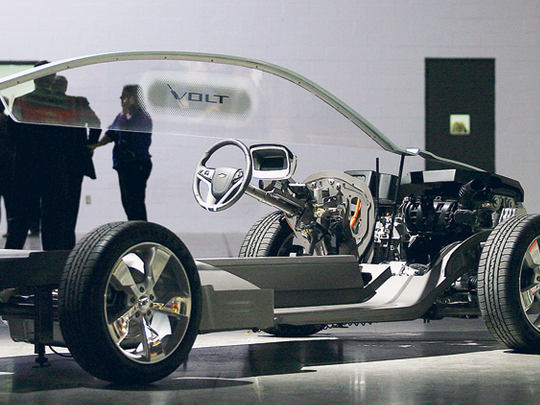
Los Angeles : General Motors aims to commercialise autos fuelled by hydrogen even as the largest US carmaker prepares to begin selling the battery-powered Chevrolet Volt plug-in vehicle late this year.
While US policy has shifted to favour developing cars that use lithium-ion packs, rather than hydrogen fuel-cell models, both are needed to cut oil reliance and greenhouse gases, Charles Freese, GM's executive director of global power train engineering, said at a briefing in Burbank, California. He discussed GM's new fuel-cell power system that's smaller, lighter and cheaper than the one used in its hydrogen-powered Equinox wagon.
"We are not abandoning the fuel-cell technology," Freese said on Tuesday. "Through the worst years in this company's history we maintained the programme and maintained the forward progress."
GM's ability to fund costly hydrogen research came into question when the former General Motors filed for bankruptcy last year. As part of its reorganisation, the Detroit-based company has reduced expenses to help pay back billions of dollars in federal bailout funds.
The Volt plug-in can travel 64 kilometres solely on lithium-ion battery power, according to GM. After the batteries run down, an on board gasoline engine recharges the cells, extending the car's driving range. Initially, the Volt will be marketed to drivers in California, which requires large automakers to offer some vehicles that emit little or no tail pipe pollution. GM has said the Volt will cost about $40,000 (Dh146,916) before a federal tax credit for electric vehicles. The company has said that eventually a fuel cell stack could replace the gasoline engine.












